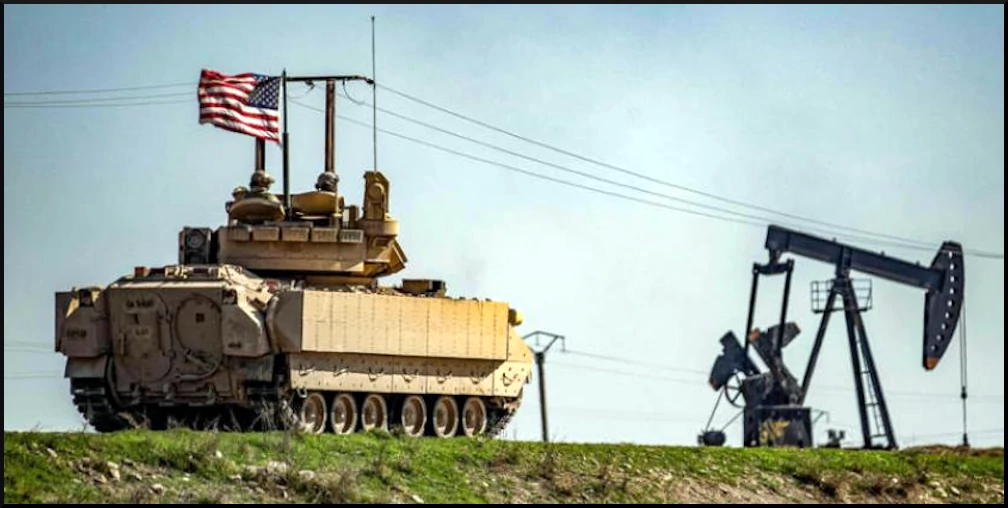by Steven Sahiounie, published on Mideast Discourse, January 23, 2024
Iran’s Revolutionary Guard (IRG) claimed responsibility for missile attacks on an Israeli “spy headquarters.” Kurdish businessman Peshraw Dizayee and four of his family members were killed in the attack on their home on January 16 near the US Consulate in Erbil, in the Iraqi Kurdistan Region (IKR).
Dizayee was the owner of the Falcon Group, which is a business involved in oil and gas, agriculture and security. The IRG claimed its missiles targeted a “Mossad headquarters”.
“No US facilities were impacted. We’re not tracking damage to infrastructure or injuries at this time,” a US official said in response to the recent attack.
Prime Minister of the IKR, Masrour Barzani, condemned the IRG attacks on Erbil.
The Oil business in Erbil
The oil business is thriving in IKR, and the Falcon Group was part of it. Kurdish oil has been exported to Israel, Italy, France and Greece through a secretive trade depending on pre-pay deals.
Israel buys much of its oil from Erbil, and Israel depends on the heavily discounted crude, making it a key customer. The oil is discounted to Israel because it is free, as the source is the stolen Syrian oil. 40% of Israel’s oil supplies were from IKR in the first three months of 2023, which doubled the amount in 2022.
Israel received its first substantial seaborne crude oil shipment from the IKR in 2014, which is the same time the US occupation forces arrived in Syria. Israel was reportedly importing as much as three-quarters of its crude oil needs from the IKR by mid-2015.
Israeli refineries and oil companies imported almost $1 billion worth of Kurdish oil between May and August of 2023, according to shipping data, trading sources and satellite tanker tracking, which represents about 77 % of average Israeli demand, which runs at roughly 240,000 barrels per day. More than a third of all of the northern Iraqi exports, which are shipped from Turkey’s Mediterranean port of Ceyhan, went to Israel over the period.
According to anonymous sources, it was a Mossad agent who first traveled to Erbil to negotiate the deal to buy oil from IKR, which was facilitated by US officials.
The US Consulate in Erbil
The new US Consulate General building in Erbil, near the attack carried out by Iran, is the biggest consulate complex built by the US. Embassies and Consulates are under the US State Department, but the consulate in Erbil has a connection to the US Department of Defense, demonstrating the strategic importance of the region for Washington, with a US military base also in IKR.
Irvin Hicks, Jr., the US Consul General in Erbil, stated in January 2023, that the new 800-million-dollar consulate building is a clear statement that the “United States of America is not going anywhere.”
The US first opened a diplomatic office in Erbil in February 2007, and later upgraded to a consulate general in 2011, the same year the US-NATO attack on Syria began for regime change, under the Obama-Biden administration.
The US embassy in Baghdad was built in 2009 and is its biggest mission compound in the world at a cost of $750 million. Iraqi Kurdistan and the Iraqi central government in Baghdad operate separately, as the Kurds are a semi-autonomous region.
Erbil has 30 consulates, six honorary consulates, and six foreign trade offices, with the Japanese consulate the latest to open on Jan. 11.
“Opening more than 30 consulates is not normal,” Iranian Brigadier General Mohammad Hossein Rajabi criticized. Most of these consulates are used for espionage activities.”
Iran views the foreign offices as having the potential to carry out plans aimed at destabilizing the security of Iran, by hosting Iranian separatist groups and bases aligned with Israeli intelligence agency Mossad.
The Iraqi response to the Genocide in Gaza
“On October 20, 2023, the Department ordered the departure of eligible family members and non-emergency U.S. government personnel from U.S. Embassy Baghdad and U.S. Consulate General Erbil due to increased security threats against U.S. government personnel and interests,” according to the State Department’s Iraq travel advisory.
Iraqis have taken to the streets to protest the US complicity in the genocide being committed in Gaza by Israel. US President Joe Biden has defied the American values of human rights and international law by continuing to send weapons to Israel to promote the wholesale slaughter of the Palestinian civilians of Gaza, even in the face of international criticism which has lowered the image of America as a beacon of freedom to a joke.
Protests have taken place outside of the US Embassy in Baghdad, and military groups which are under the central government of Iraq have fired rockets and armed drones at US troops based in Anbar and near Erbil multiple times. Baghdad does not recognize Israel; however, the IKR are aligned with the US, and sell the stolen oil from Syria to the prime US ally, Israel.
The US invaded and destroyed Iraq in 2003, and occupied the country for years until a withdrawal. When ISIS reared its ugly head, the Baghdad government requested US troops to come to help in the fight against ISIS, which saw its defeat at the hands of Iraq, Syria, Russia, and the US. The Iraqi parliament ordered the US troops to leave after the defeat of ISIS in 2017, but the Department of Defense refused. The Prime Minister of Iraq has recently ordered the US troops to leave immediately following the US assassination of Mushtaq Jawad Kazim al-Jawari in Baghdad on January 4, an Iraqi military commander who was instrumental in the defeat of ISIS.
The PKK in Syria and Erbil
The PKK aligned SDF in north east Syria is US supported. The US military in Syria are occupying the largest oil field in Syria, which prevents the Damascus government from using the oil to provide electricity to the Syrian people, who suffer with just 3 hours of electricity per day.
In December 2023, 44-tanker convoy carrying oil stolen from Syria traveled clandestinely to US bases near Erbil. Just days before, US forces took 95 tankers of oil and a truckload of stolen Syrian wheat to IKR. The Syrian wheat fields are also in the area the US troops occupy and the area is controlled by Kurds who are aligned with the IKR.
Farhan Jamil Abdullah, head of the Syrian Oil Company, said in July that as a result of the US sanctions and military occupation in Syria, oil production has decreased to 15,000 barrels per day from 385,000 barrels before 2011.
Firas Hassan Kaddour, the Syrian Oil Minister, said in July that the losses of the energy sector in Syria are close to 100 billion U.S. dollars.
The main oil field of Al Omar and Conoco in Syria are producing oil which is shipped in tankers by the US Army and refined at Kar Oil Refinery in Erbil.
The US sponsors the SDF militia in Syria which is dominated by the YPG. The YPG is the Syrian branch of the PKK, a group recognized by Turkey, as well as the US and the EU, as a terrorist organization, who have killed more than 40,000 persons over decades.
Turkey has condemned the US alliance with the SDF and YPG, and considers the US is financing terrorism.
The commander of the SDF is General Mazloum Kobani, who is also a member of the PKK. His real name is Ferhat Abdi Sahin, is one of Turkey’s most wanted terrorists. Kobani was chosen by the US as their military ally and it is at Kobani’s command that the stolen Syrian oil is loaded into tankers.
Erdogan has demanded for years that the US must stop supporting the SDF, YPG, and to stop encouraging the Kurds to establish an independent homeland in north east Syria on the border with Turkey, which is a NATO member, and ally of the US, housing an American military base there.
Steven Sahiounie is a Syrian with a U.S. parent, living in Latakia, Syria. He is the Editor of Mideast Discourse, and has twice been awarded the Serena Shim Award for Uncompromised Integrity in Journalism.
 Syria Support Movement solidarity with the Syrian people
Syria Support Movement solidarity with the Syrian people





